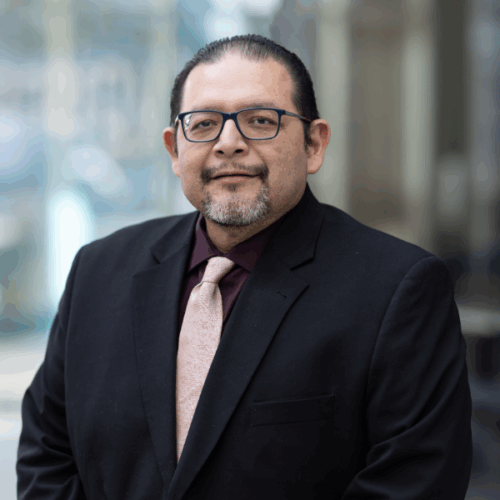An Unplanned Sabbatical Changed My Life

One year ago I gave myself the gift of a sabbatical…and it changed my life. After my job as a VP/COO at a nonprofit was abruptly eliminated, I was left unemployed, with no substantive job leads, and a choice. The choice centered on what to do next. After working full-time for the last 20-plus years with little interruption, I decided to take some time off and make the best of my newly found free time.
I planned to take a four-month sabbatical. My mantra during this time was to rest, recharge, and renew. I come from a hard-working family who prides itself in an honest day’s work, and working for the sake of it making you a better version of yourself. I had to wrap my head around the value of time away from work. As Stephen Covey said in his famous book, “The Seven Habits of Highly Effective People,” I had to see the value of sharpening the saw.
My sabbatical included tasks I expected to undertake, such as meeting with over 50 colleagues to discuss a potential career pivot. It also included unexpected adventures and learning experiences, such as a brief trip to Mexico, a month-long professional exchange to Australia, and a reflective application process for a Bush Fellowship. During my sabbatical I also explored consulting with small nonprofits; unbeknown to me, this would become my career pivot at the end of my 9-month sabbatical. (My expected 4-month sabbatical turned into 9 months because of the items listed above.)
I can look back now to twelve months ago and reflect on what I’ve learned during this last year. In the spirit of paying it forward, I want to share my lessons learned with others.
- Embrace the change: Here in Minnesota, all drivers are taught to “drive into the skid” when you hit a patch of slippery ice or snow. The concept is to not resist the change – in this case the temporary loss of control of your car – but to embrace it and use the inertia to your benefit. I had just lost a job I enjoyed – I enjoyed the title, the mission, the prestige, the influence, the pay – and needed to “drive” through this loss to a new opportunity.
- Spend time thinking about big questions: I spent time thinking about whether or not I wanted to change sectors. After working for nearly 20 years in the public and nonprofit sectors, I considered taking a shot at working in corporate America. Similarly, I’d spent most of my career in bilingual-bicultural Latino organizations. I was thinking of focusing on a broader demographic, and working in a more multicultural environment. These were two big questions related to a career pivot that I thought about regularly during my sabbatical and discussed with numerous colleagues.
- Be open with your colleagues: My initial instinct was to share my ideas, my current experience, and my needs with others. I felt I needed to pivot from my past career journey, and I needed the advice of others as I moved forward. I felt reassured about my process after speaking with a colleague of mine who shared how he had felt embarrassed and angry after he was abruptly terminated, and because of this he had retreated a bit from his colleagues. He encouraged me to continue on the path I had started.
- Write a plan and work the plan: From the time my employment ended I had a plan; initially it was a 4-month plan and later became a 9-month plan. Your plan can be shorter or longer depending on your support system and financial resources. My initial plan included meeting with colleagues, a trip to Mexico, some short-term consulting projects, and some time for learning through reading and hands-on experiences. The plan grew to nine months as I waited to hear the outcome of my fellowship application, and I embarked on my cultural exchange trip to Australia. (The direction of my job search would be affected if I was chosen for the fellowship.)
- Say yes to opportunity: During my sabbatical I took a month-long trip to Australia as part of a professional and cultural exchange program. A friend of mine recommended it to me – she had previously asked me for three or four years to apply. Now I had the time to do so, and I did. The trip was a great learning experience, an opportunity to build new friendships, and a chance to further reflect on the career pivot I was considering.
- Recharge with others and by yourself: As a natural introvert, I needed some alone time to recharge. I spent time reading, writing, and learning. I organized a brief trip to the Yucatan peninsula in Mexico. During my time there I visited ancient sites of the Maya and sat on the beach; times like these were designed for me to listen to myself. (As I mentioned previously, I listened to other people as well, visiting with over 50 colleagues during this time.)
- Celebrate with others: I wanted to share my experience and gratitude with my friends and colleagues who had been in touch with me since I sent them my “departure email” 12 months ago. Similarly I wanted to share with them the outcome of my experience. At a recent happy hour with my colleagues I shared my new job, a new perspective on work and life, pictures from my travels, connections to new friends, and lessons learned from my period of rest, recharge, and renewal.
I still value a good day’s work as my parents taught me. But I am now a convert who believes regular periods of rest and ongoing self-care are important for your success. My unplanned sabbatical helped me grow as a professional, as a father, and as an individual; it was the gift of a lifetime.

